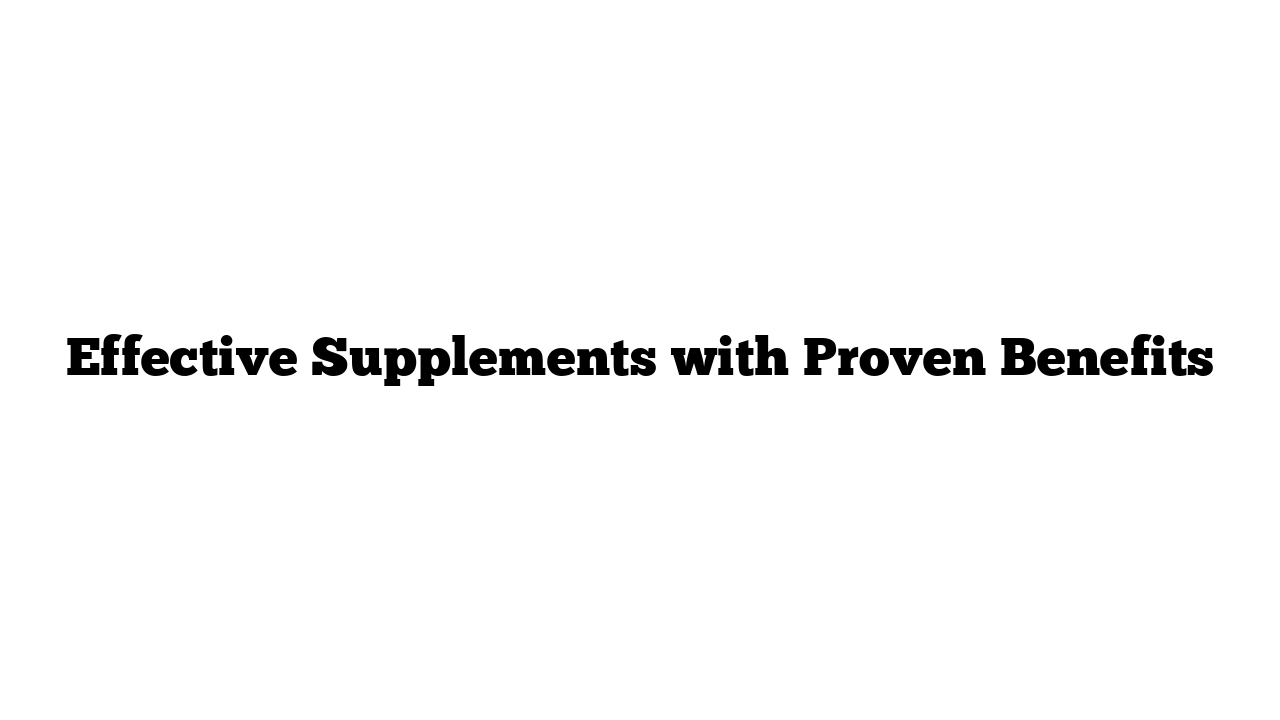In today’s world, supplements are often debated, with countless products on the market claiming various benefits. However, only a few have solid evidence backing their effectiveness. Here, we’ll explore some supplements with proven benefits, ranging from muscle support to cognitive health.
1. Creatine: Beyond Muscle Performance
Most people know creatine for enhancing muscle performance and aiding in recovery. What many don’t realize is its emerging role in cognitive support.
- Muscle Benefits: Creatine is one of the most well-researched supplements, with studies confirming its safety. It is not linked to hair loss, kidney damage, or dehydration, and it supports lean muscle gain.
- Cognitive Boost: New research suggests that creatine also helps improve memory and brain function, especially in times of stress, sleep disruption, and aging. A 2022 meta-analysis revealed that creatine can enhance memory performance, particularly in older adults.
Doctor’s Note: I personally take 5 grams of creatine daily, even on non-workout days, for both muscle and brain support.
2. Protein Powder: Essential for Strength and Longevity
Adequate protein intake is vital for muscle maintenance, which correlates with longer life expectancy.
- Daily Protein Goals: For optimal muscle health, aim for 1.6 grams of protein per kilogram of body weight per day. Older adults, who absorb protein less efficiently, may need up to 2 grams per kilogram.
- Convenience of Protein Powder: Meeting these protein goals can be challenging through diet alone, making protein powder an excellent, bioavailable option. Just ensure it’s free of added sugars and salts.
Did You Know? A 2020 study found higher protein intake is linked to a lower risk of all-cause mortality. This is a valuable consideration for maintaining strength and independence as we age.
3. TMG (Trimethylglycine) for Muscle and Brain Health
TMG helps recycle ATP, the molecule that fuels muscle contractions, and may aid in protein synthesis.
- Exercise Synergy: While not all studies found benefits, TMG paired with exercise has shown improvements in muscle strength and endurance.
- Brain Health: TMG also lowers homocysteine levels, a factor linked to Alzheimer’s risk. While more research is needed, TMG may play a role in reducing dementia risk.
Recommendation: I take between 500 mg and 1 gram of TMG daily to support both brain and muscle health.
4. Multivitamin and Mineral Supplements: Filling Nutritional Gaps
About 31% of Americans risk vitamin deficiencies. While diet is the best source of vitamins, a daily multivitamin can help bridge the gap.
- Cognitive Support: A 2022 trial found that multivitamin use over three years yielded benefits for global cognition in older adults.
- Choosing the Right Multivitamin: Select a multivitamin without excessive doses, focusing on essential nutrients like vitamins B3, D3, K2, zinc, and magnesium.
5. Omega-3 Fatty Acids for Heart Health
Although Omega-3 supplements don’t appear to prevent cognitive decline in trials, they have a proven protective effect on heart health.
- Heart Benefits: The VITAL trial demonstrated a remarkable 28% reduction in heart attack risk with Omega-3 supplementation, and a Mayo Clinic analysis confirmed this heart health benefit.
Visit medicaltimes.io for more in-depth discussions on health, supplements, and wellness.
6. Psyllium Husk: A Fiber for Gut and Heart Health
Fiber is essential for digestive health and supports beneficial gut bacteria, which in turn help regulate the immune system.
- Cholesterol Management: Psyllium husk has shown effectiveness in reducing LDL cholesterol. It can be easily added to shakes or smoothies for a convenient daily fiber boost.
7. Collagen Peptides: Skin and Joint Support
Collagen supplements are known to reduce wrinkles and may even support joint health, especially in individuals with high protein needs.
- Research Insights: A 2023 meta-analysis concluded that hydrolyzed collagen enhances skin elasticity and hydration.
- Usage: I consume 10 to 15 grams of collagen peptides daily to support skin health.
8. Hyaluronic Acid for Skin Hydration
Hyaluronic acid is a powerful ingredient for skin hydration and reducing fine lines.
- Effectiveness: Studies show an 18% reduction in skin wrinkles with hyaluronic acid supplements. Some concerns about cancer risks have been discussed, but no adverse effects have been found in studies up to 12 months.
9. Low-Dose Melatonin for Sleep and Anti-Aging
Melatonin is often used as a sleep aid, but it also serves as an antioxidant with anti-inflammatory benefits.
- Optimal Dosing: Low doses of melatonin (around 300 micrograms) are ideal. Older adults may consider a low-dose prolonged-release version to maintain youthful melatonin levels.
Tip: Take melatonin 1-2 hours before bedtime to align with your natural sleep cycle.
10. NAC (N-Acetyl Cysteine) for Antioxidant Support
NAC may support glutathione production, an important antioxidant that declines with age.
- Early Evidence: Although research is still limited, a trial found that NAC combined with glycine improved glutathione levels and mitochondrial function in older adults.
Final Takeaway: When considering supplements, it’s essential to choose ones with strong evidence of benefit. Each of these options has unique, scientifically supported health benefits, but they should be used as part of an overall healthy lifestyle.
For more details on supplement use and other wellness topics, visit medicaltimes.io.
